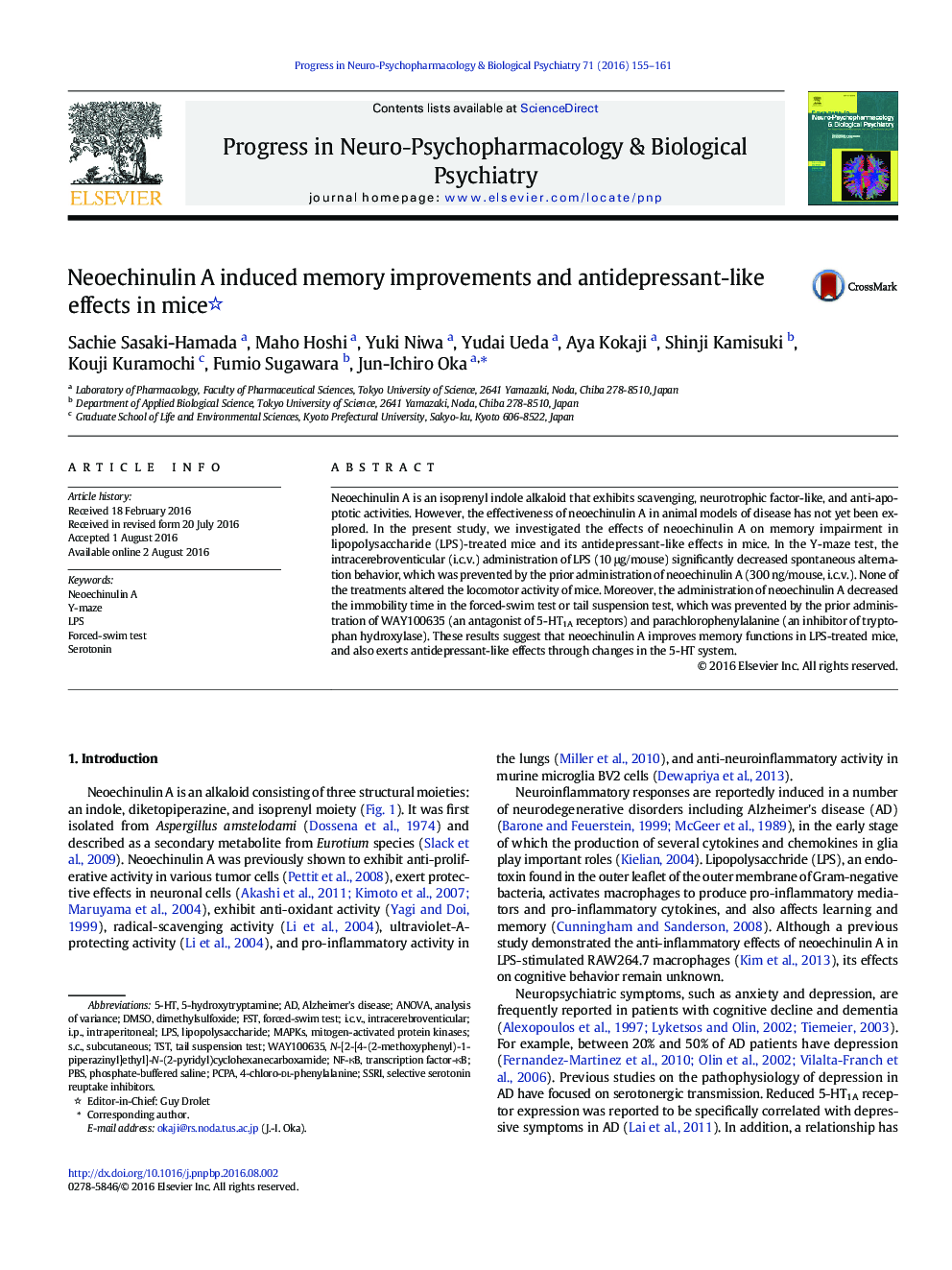| Article ID | Journal | Published Year | Pages | File Type |
|---|---|---|---|---|
| 2564642 | Progress in Neuro-Psychopharmacology and Biological Psychiatry | 2016 | 7 Pages |
•The administration of neoechinulin A improved memory function in LPS-treated mice.•The administration of neoechinulin A reduced the immobility time in the mouse FST.•PCPA prevented the antidepressant-like effects of neoechinulin A.•NAN-190 and ketanserin prevented the antidepressant-like effects of neoechinulin A.
Neoechinulin A is an isoprenyl indole alkaloid that exhibits scavenging, neurotrophic factor-like, and anti-apoptotic activities. However, the effectiveness of neoechinulin A in animal models of disease has not yet been explored. In the present study, we investigated the effects of neoechinulin A on memory impairment in lipopolysaccharide (LPS)-treated mice and its antidepressant-like effects in mice. In the Y-maze test, the intracerebroventicular (i.c.v.) administration of LPS (10 μg/mouse) significantly decreased spontaneous alternation behavior, which was prevented by the prior administration of neoechinulin A (300 ng/mouse, i.c.v.). None of the treatments altered the locomotor activity of mice. Moreover, the administration of neoechinulin A decreased the immobility time in the forced-swim test or tail suspension test, which was prevented by the prior administration of WAY100635 (an antagonist of 5-HT1A receptors) and parachlorophenylalanine (an inhibitor of tryptophan hydroxylase). These results suggest that neoechinulin A improves memory functions in LPS-treated mice, and also exerts antidepressant-like effects through changes in the 5-HT system.
